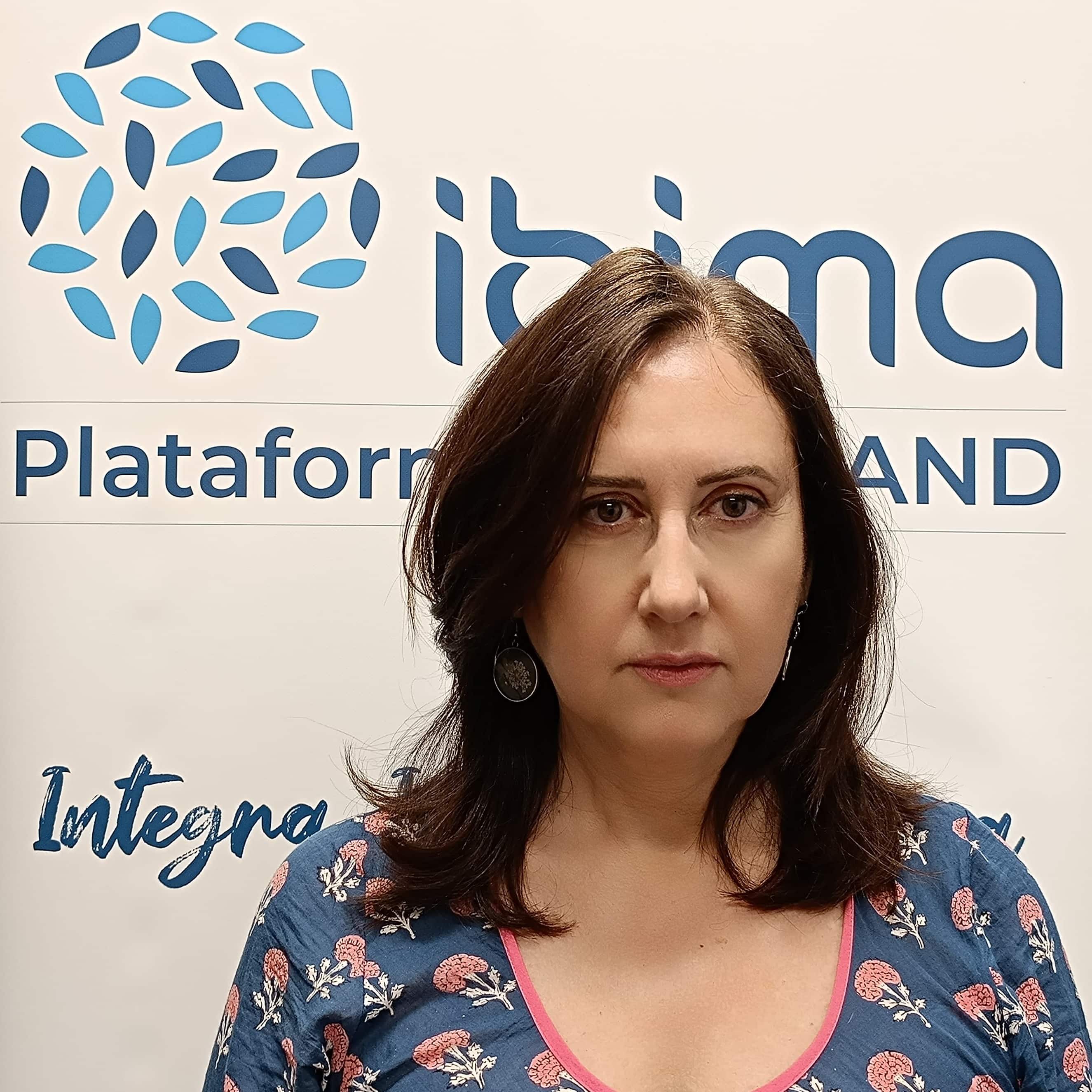Neurociencia Cognitiva: Afasia y Trastornos relacionados (UNCA)
Lineas de Investigación
- Proyectos de investigación
- Estudios clínicos
- Publicaciones científicas
- Ofertas tecnológicas
- Registros de propiedad industrial
No hay resultados
No hay resultados
Light-Dependent Effects of Prefrontal rTMS on Emotional Working Memory
Protocols for cognitive enhancement. A user manual for Brain Health Services-part 5 of 6
Guevara, AB; Bieler, M; Altomare, D; Berthier, M; Csajka, C; Dautricourt, S; Demonet, JF; Dodich, A; Frisoni, GB; Miniussi, C; Molinuevo, JL; Ribaldi, F; Scheltens, P; Chetelat, G – 2021
SimPET-An open online platform for the Monte Carlo simulation of realistic brain PET data. Validation for (18 )-FDG scans
Paredes-Pacheco, J; Lopez-Gonzalez, FJ; Silva-Rodriguez, J; Efthimiou, N; Ninerola-Baizan, A; Ruibal, A; Roe-Vellve, N; Aguiar, P – 2021
Assessment of the Quality of Mobile Applications (Apps) for Management of Low Back Pain Using the Mobile App Rating Scale (MARS),
Escriche-Escuder, A; De-Torres, I; Roldan-Jimenez, C; Martin-Martin, J; Muro-Culebras, A; Gonzalez-Sanchez, M; Ruiz-Munoz, M; Mayoral-Cleries, F; Biro, A; Tang, W; Nikolova, B; Salvatore, A; Cuesta-Vargas, AI – 2020
Consonant and vowel articulation accuracy in younger and middle-aged Spanish healthy adults
Moreno-Torres, I; Nava, E – 2020
Developmental Dynamic Dysphasia: Are Bilateral Brain Abnormalities a Signature of Inefficient Neural Plasticity?
Berthier, ML; Davila, G; Torres-Prioris, MJ; Moreno-Torres, I; Clarimon, J; Dols-Icardo, O; Postigo, MJ; Fernandez, V; Edelkraut, L; Moreno-Campos, L; Molina-Sanchez, D; de Zaldivar, PS; Lopez-Barroso, D – 2020
Impact of literacy on the functional connectivity of vision and language related networks
Lopez-Barroso, D; de Schotten, MT; Morais, J; Kolinsky, R; Braga, LW; Guerreiro-Tauil, A; Dehaene, S; Cohen, L – 2020
Intensity normalization methods in brain FDG-PET quantification
Lopez-Gonzalez, FJ; Silva-Rodriguez, J; Paredes-Pacheco, J; Ninerola-Baizan, A; Efthimiou, N; Martin-Martin, C; Moscoso, A; Ruibal, A; Roe-Vellve, N; Aguiar, P – 2020
Neurocognitive signatures of phonemic sequencing in expert backward speakers
Torres-Prioris, MJ; Lopez-Barroso, D; Camara, E; Fittipaldi, S; Sedeno, L; Ibanez, A; Berthier, ML; Garcia, AM – 2020
Paradoxical recovery of L2 in a bilingual aphasic person: addressing issues on causative factors and accent
Dieguez-Vide, F; Fernandez-Planas, AM; Fulla, JG; Puig, J; Berthier, ML; Elvira-Garcia, W – 2020
Pharmacotherapy of Traumatic Childhood Aphasia: Beneficial Effects of Donepezil Alone and Combined With Intensive Naming Therapy
Davila, G; Moyano, MP; Edelkraut, L; Moreno-Campos, L; Berthier, ML; Torres-Prioris, MJ; Lopez-Barroso, D – 2020
Need to Know or the Strong Urge to Find Names of Unique Entities in Acquired Obsessive-Compulsive Disorder
Edelkraut, L; Berthier, ML; Green-Heredia, C; Lopez-Gonzalez, FJ; Roe-Vellve, N; Torres-Prioris, MJ; Tubio, J; Lopez-Barroso, D – 2019
Language as a Threat: Multimodal Evaluation and Interventions for Overwhelming Linguistic Anxiety in Severe Aphasia
Torres-Prioris, MJ; Lopez-Barroso, D; Paredes-Pacheco, J; Roe-Vellve, N; Dawid-Milner, MS; Berthier, ML – 2019
QModeling: a Multiplatform, Easy-to-Use and Open-Source Toolbox for PET Kinetic Analysis
Lopez-Gonzalez, FJ; Paredes-Pacheco, J; Thurnhofer-Hemsi, K; Rossi, C; Enciso, M; Toro-Flores, D; Murcia-Casas, B; Gutierrez-Cardo, AL; Roe-Vellve, N – 2019
Sedation-analgesia protocol for the injection of botulinum toxin A in cerebral palsy
Cantador-Hornero, M; Jimenez-Espuch, P; de Torres-Garcia, I; Contreras-Jimenez, M; Martinez-Mezo, GL; de los Santos, JMM; Fernandez-Jurado, MI; Tirado-Reyes, M – 2019
tDCS recovers depth perception in adult amblyopic rats and reorganizes visual cortex activity
Castano-Castano, S; Feijoo-Cuaresma, M; Paredes-Pacheco, J; Morales-Navas, M; Ruiz-Guijarro, JA; Sanchez-Santed, F; Nieto-Escamez, F – 2019
Repetitive verbal behaviors are not always harmful signs: Compensatory plasticity within the language network in aphasia
Torres-Prioris, MJ; Lopez-Barroso, D; Roe-Vellve, N; Paredes-Pacheco, J; Davila, G; Berthier, ML – 2019
No hay resultados
Miembros
-
Investigadora ResponsableSerá Investigador de este nivel los Investigadores Responsable que lideren un grupo de investigación del Instituto y sus Co-IR. Esta categoría puede incluir investigadores muy excepcionales en su disciplina.

Guadalupe Dávila Arias
Correo electrónico: mgdavila@uma.es
-
Investigador/a SéniorSerán aquellos que tengan una actividad investigadora de al menos 5 años en la etapa posdoctoral. Estos investigadores estarán adscritos a un Grupo de Investigación liderado por un Investigador Responsable. Las funciones serán las que le tenga asignadas su IR. Pueden liderar una línea de investigación de alguno de los grupos de investigación del Instituto, con financiación competitiva propia, y con potencial para llegar a convertirse responsable de un grupo de investigación.
No hay resultados
-
Investigadores/as posdoctorales y/o juniorEsta etapa posdoctoral estará restringida a Investigadores del Instituto que tengan el título doctor y no contemplados en los perfiles posteriores. Durante su etapa posdoctoral pueden llegar a liderar proyectos de I+D+i como Investigadores Principales, aunque aún no hayan establecido un nivel significativo de independencia. Además, pueden tener actividades de docencia y/o asistencial más allá de su trabajo de investigación.
No hay resultados
-
Investigadores/as predoctorales y/o en formación
Los investigadores predoctorales y/o en formación serán aquellos investigadores que realizan investigaciones bajo supervisión en una línea de investigación orientada a la resolución de problemas de salud. Incluye aquellos investigadores que están cursando un doctorado (incluyendo a los contratados Río Hortega)
No hay resultados
